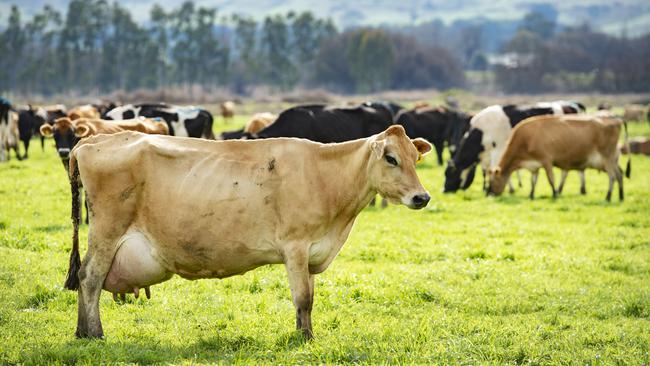Agribusiness net zero targets are hitting farms and supply chains
Multinationals’ ambitious emissions reduction targets are ‘cascading down’ the supply chain to farmers.
Multinational companies are setting ambitious emissions reduction targets, and ready or not, farmers will need to follow suit, an expert has said.
Unilever, Woolworths, Fonterra, Heineken, JBS and Olam are among the companies to have set reductions targets in the wake of the Cop26 and Paris Agreement.
University of Melbourne sustainable agriculture professor Richard Eckard said farmers could expect those targets to be passed down to them through the supply chain.
“Companies are where the drive to net zero is coming from,” he said.
“These companies are setting these targets because they perceive where consumer preferences are going in the future, and they want to deliver to their shareholders who are concerned about consumer preferences,” Mr Eckard said.
It was possible to see how a decision by one company could affect an entire supply chain by looking at the ambitious net zero target set by Unilever last year, Mr Eckard said.
The company committed in June last year to reaching net zero emissions by 2039, a target that includes both direct emissions and emissions created by its suppliers.

Since then, the target has “cascaded down” the company’s supply chain to farmers, Mr Eckard said.
Fonterra, a major supplier of dairy products to Unilever, has committed to net zero emissions from its manufacturing sites by 2050, and no net increase in greenhouse gas emissions from dairy farming between 2015 and 2030.
The company on Monday announced it would invest about $3.7 billion by 2030 to move milk into higher value products, pursue growth, and reduce emissions.
The target is “setting dairy farmers on the path to lower carbon”, Mr Eckard said.
The impacts of emissions reduction targets were being felt across a range of industries, he said.
Multinational beer brewer Heineken in September announced it was aiming for “net zero from barley to bar by 2040” and would get there by “driving a renewable energy step change and focusing on low carbon agriculture, green packaging, logistics and cooling innovations”.
The company set targets of reducing its direct emissions by 90 per cent and the emissions from its suppliers by 21 per cent (compared to its 2018 baseline).
“That sparked a whole lot of activity in using our (carbon) calculators by the barley malt growers (in Victoria),” Mr Eckard said.
These are just two of a swath of carbon reduction targets sending ripples through Australian businesses.
In October, Mars announced it would reduce its greenhouse gas emissions across its value chain 27 per cent by 2025 and 67 per cent by 2050 (from 2015 levels).
In March, leading meat and poultry company JBS announced it was aiming for net zero by 2040.
Supermarket chain Woolworths has announced it is aiming to reduce its scope three emissions by 19 per cent by 2030 from a 2015 base year, and will reduce its direct emissions by 63 per cent.
Agribusiness Olam has announced it will reduce greenhouse gas emissions by 50 per cent by 2030 both in its own operations and in its supply chain.
Farmers supplying to any of these companies may be expected to reduce or offset their carbon emissions in future, Mr Eckard said.
“There’s no product price premium in this. This is just a future market access requirement.”





